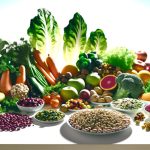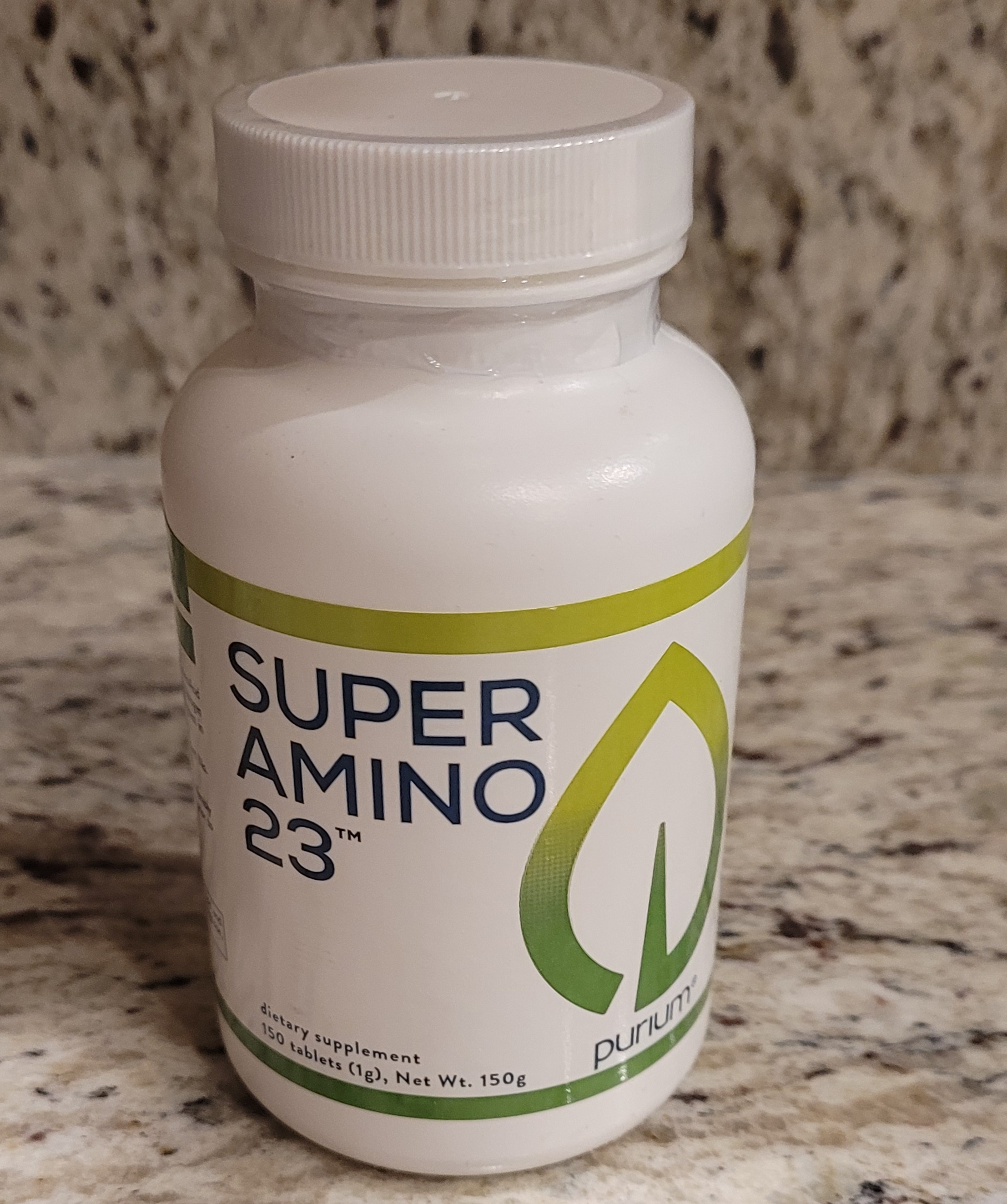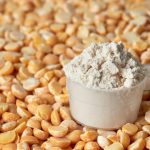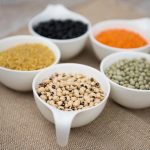Fresh Spirulina is famed for its rich composition of full proteins, which contain the 8 amino acids necessary to construct a protein. But its benefits extend far beyond this; it can be a source of incredible health benefits for athletes and those looking to slim down.
Spirulina that is newly harvested is renowned for its plentiful vitamins and advantages to wellbeing. Losing weight and bodybuilding can be aided by having a healthy diet, and spirulina has been a particularly popular dietary supplement since the 1950s due to the positive results of several studies conducted during that time. This ancient superfood has been around for over 3 billion years.
Composition of Spirulina
- 55-70% Protein
- 10-25% Carbohydrates
- 5-20% Fat
The precise figures vary depending on the specific product. Spirulina is a great vegan source of protein and provides 3.6g of fiber for each 100g. The fats present in this mixture are a great combination, with high amounts of polyunsaturated lipids, minimal sugar, and a variety of different proteins. It is a comprehensive protein as it incorporates all of the essential amino acids that our bodies cannot produce.
Micronutrients in Spirulina
Spirulina stands out when it comes to micronutrients. Later on we will investigate antioxidants more thoroughly, yet for now we should concentrate on the vast variety of vitamins and minerals that this algae contains. Spirulina contains a fabulous range of both vitamins and minerals and is especially high in the following:
- Riboflavin (Vitamin B2) – 100g provides more than double the RNI
- Thiamine (Vitamin B1) – 100g provides around double the RNI
- Copper – A 15g serving provides approximately the required daily intake
- Iron – 100g provides double (and according to some sources much more) of the RNI
- Manganese – No UK RNI but 100g delivers around 100% of the US recommended intake
- Niacin (Vitamin B3) – Around two thirds of RNI in 100g
The British Nutrition Foundation’s recommended nutrient intake (RNI) or “required daily intake” is mentioned when relevant. Statistics reported are relevant to grown-ups.
Moreover, spirulina also has significant amounts of vitamins B5, E and K, choline, magnesium and potassium. Furthermore, it has noteworthy quantities of vitamin A, vitamin B6, folate, calcium, phosphorus, selenium, and zinc. Not bad for some algae!
An Asset for Sport
What is the active ingredient in this blue alga that causes weight loss or muscle growth? A beneficial beverage for athletes, sportsmen, and sportswomen made with Spirulina, Gotu Kola, Maca Root, Ashwagandha Root, and water can provide a multitude of nutrients. It is a simple alkalizing meal replacement. The amount of nutrients in spirulina and the proportions in which they are present may differ between brands and locations where it is grown. No matter what type of Spirulina product you obtain, it will always be valuable to your well-being, whether you are an athlete or looking to shed pounds.
- Proteins of which it is composed of 71%. Great for athletes and to burn fat.
- Amino acids. Spirulina is one of the only plant foods that have the 8 amino acids that make up a complete protein. This makes it a key ingredient for vegetarians, vegans and athletes.
- Carbohydrates. <1g per 20g of fresh spirulina.
- Essential fatty acids. Data collected shows that spirulina contains unusually high levels of gamma-linolenic acid, an essential polyunsaturated fatty acid (GLA).
- Vitamins: E, B (B1, B2, B3) and K to mention a few.
- Enzymes including Superoxide Dismutase (SOD). This enzyme is important in the fight against free radicals and oxidative stress.
- Many minerals. Among them iron, calcium and zinc.
- Trace elements. Among them boron and selenium.
- Pigments such as chlorophyll, C-phycocyanin and beta-carotene, which are powerful antioxidants.
The Benefits of Spirulina Diet on Bodybuilding and Muscle Building
Those who engage in bodybuilding should have a nutritionally dense diet to support their muscles and overall health. Fantastic news for bodybuilders, some great new spirulina is full of helpful vitamins and minerals!
Rich in Protein
Spirulina is a great natural source of total protein, which contains all 8 essential amino acids required for creating a complete protein. This makes it an ideal choice to help with muscle regeneration following a bodybuilding workout.
Essential Fatty Acids, Enzymes, Pigments and Trace Elements
Spirulina includes significant amounts of essential fatty acids, enzymes, and pigments that can help to reduce free radicals and oxidative stress, thereby boosting muscle recovery. It is essential to reduce inflammation in bodybuilding to enable the muscles to heal and remain healthy. Copper and iron, both found in spirulina, contribute to the production of hemoglobin, which transports oxygen to the muscles. Copper has the ability to get rid of harmful free radicals and reduce inflammation.
Spirulina contains carbohydrates that break down quickly. Consuming spirulina prior to a strength training workout (or any other physical activity) can help boost the accessible energy. The carbs in Spirulina can help repair DNA, neutralize free radicals, and boost the immune system. These properties enable the body to work out harder and build muscle while preserving its health.
Endurance
Stamina while participating in sporting activities is largely determined by the body’s capacity to supply adequate oxygen to the muscles and organs that are utilized. Spirulina enhances the oxygenation of the muscles and increases the maximum oxygen volume of athletes. Thanks to its high content of iron and copper, it is involved in the formation of hemoglobin, which transmits oxygen to the muscles.Should you consume fresh spirulina before or after sports?You can consume spirulina at any time of the day, following your needs:
- In the morning, to prepare the muscles for physical exertion and thus benefit from its benefits on endurance.
- After the effort to improve muscle recovery and prevent inflammation. You can also postpone this intake at the end of the meal, but especially not more than two hours after the end of the physical effort.
Adding spirulina to your diet will be beneficial for your health.
Weight Loss
Engaging in physical activity to better oneself is a great way to stay fit, and consuming fresh spirulina can also be beneficial when trying to slim down. As many first-time dieters have come to realize, consuming high amounts of protein can be effective in aiding weight loss. Proteins take more effort for the body to break down, resulting in the body burning more calories for energy. This, in turn, leads to the body burning fat to get the energy it needs. Spirulina is very light in calories.
This foodstuff has very few calories but a lot of energy, making it perfect for shedding pounds without restricting your diet. Furthermore, the enhanced stamina that spirulina provides helps to slim down as well. Exercising physically is less tiring for the body, making it more achievable to attain, thus making weight loss simpler. In addition, Spirulina contains phenylalanine, a form of amino acid which serves as an appetite suppressant.
It is recommended to take a portion of spirulina about 15 minutes prior to eating in order to maximize satiety and shed pounds. Phenylalanine can help to reduce your appetite by providing a sense of satiety when you would usually be tempted to indulge in a sweet treat. In other words: Spirulina will help you lose weight.
Other Benefits of Spirulina
Spirulina Could Feed the World
Looking into Spirulina as a potential food source for astronauts taking part in Mars exploration was driven in part by its extraordinary nutrient content. This same attribute implies that spirulina could be extraordinarily advantageous in combating malnourishment in certain of the poorest nations on the planet. In addition to being chock full of vitamins and minerals, spirulina is also environmentally friendly.
It furnishes a great deal of protein while utilizing only a small amount of natural resources. Additionally, this crop can be cultivated in numerous impoverished nations and can be used as fodder for various types of domesticated animals if necessary, while also supplying work for local citizens who haven’t yet changed to a vegan diet.
Treating Iron Deficiency
It is widely known that iron deficiency is a major nutritional issue around the world and consuming spirulina could greatly help to remedy that. A report published confirmed that their data indicated that, “Spirulina may counteract anemia” and whilst it said further research was needed other studies have produced similar findings. Moreover, the already discussed general nutritional benefits and low environmental impact of its production mean spirulina is better than alternative iron-rich foods in other ways too.
Cancer, Fatigue, Allergies, Diabetes, Cholesterol
It is generally agreed upon by the scientific community that more research needs to be conducted in order to determine whether spirulina can truly treat the numerous other health issues it has been reported to cure. In 2010, findings concluded as much. It has been nearly a decade since then, yet there is still not enough strong proof and the same conclusion is still applicable. According to current research, spirulina appears to be a secure nutritional supplement with no major adverse effects, but its properties as a medication have yet to be determined.
Issues with Spirulina
Besides the scarcity of reliable proof to support the assertions made about this blue-green algae, there are numerous other matters that need to be considered concerning spirulina.
Value for Money
What is the worth of spirulina compared to the cost it would take to buy it? If finances are not an issue, you can ignore this, however, for most vegans who are wondering if they should take spirulina, the cost is likely to be a factor. We have stated that spirulina could be beneficial for those in poorer countries, but at the present time, it is still quite pricey as a supplement. Even the least expensive versions available at some large supermarkets are still quite costly.
A variety of items can be found in health food stores and our beloved online vegan supermarkets, with prices ranging from approximately £20 per kilo up to £60 per kilo. While you may only use a bit at a time, for many people that still adds up to a lot of money.
As more people start to use spirulina and the demand for it increases, the cost may go down; however, at this time, some may doubt if spirulina is worth the money. Yes, it is packed with essential nutrients, but it does not qualify as an actual food. The nutrients it provides are already present in food sources that are accessible to vegans and are much more economically viable.
Limited Consumption
We have just covered another worry and that is that usually spirulina is taken in small quantities. That’s great news for your pocketbook, but it could imply that some assertions regarding the health advantages and micronutrients might be exaggerated. For a given meal, you would usually consume 80g of lentils, quinoa, or chickpeas, 30g of nuts and seeds, and 100g or more of bread or potatoes. In comparison, when eating spirulina, the average portion size is 2 or 3g, with 10g being the larger amount typically consumed, and rarely more than 15g. 100g of the powder might contain enough manganese to meet your needs, but if you only have 5g, that won’t be enough.
Interaction with Drugs
The last point is the most pressing, and it involves how spirulina might negatively affect individuals with weakened immune systems if taken with certain medications. Most research has found that the algae is generally safe, but it would be wise to talk to your doctor if you use blood thinners, have any issues with your liver or kidneys, or have a vulnerable immune system.
Toxicity
In addition, another source has indicated that there have been cases of polluted spirulina being extremely dangerous. Algae typically remove toxins and metals, but certain kinds of spirulina products may contain microcystins, which are hazardous. Fortunately, this is very rare, and if you buy your spirulina from a reliable source, the chances of this happening are much lower.
Conclusion
In conclusion, we would say the following when it comes to spirulina in general and with regards vegans in particular:
- Spirulina is vegan in its pure form
- It is highly nutritious and a good way to get lots of vitamins and minerals without consuming much food or energy
- Those on a budget may be better obtaining their nutrients through a healthy, balanced, vegan diet
- It may help with many health issues but the science suggests it is best for weight loss and battling anemia and iron deficiency
- It is generally accepted to be a safe food supplement









